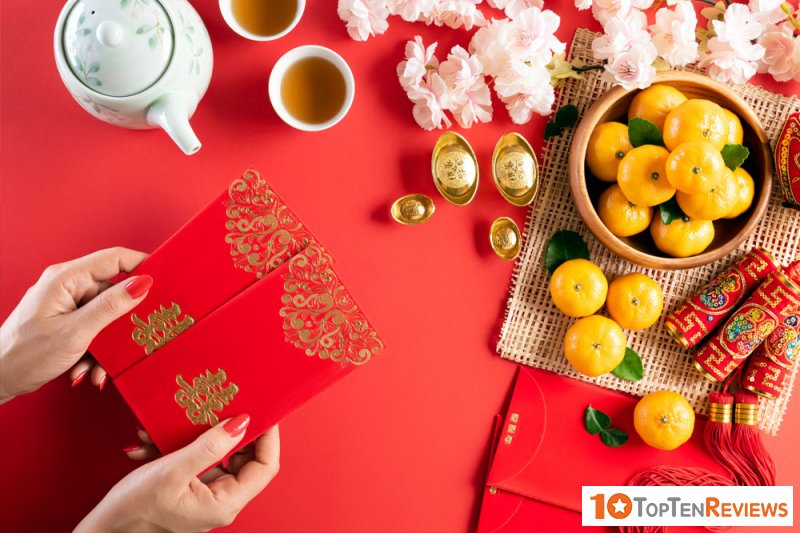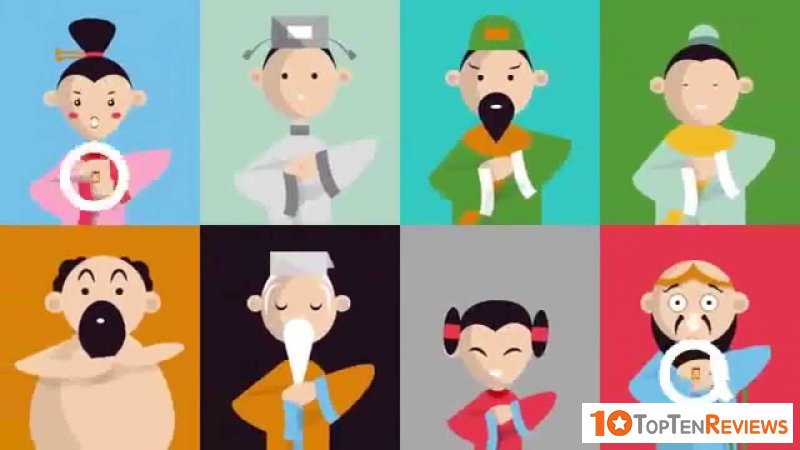People often say, "When you see Chung cake, you see Tet," "When you see lucky money, you see Tet." At the beginning of the new year, when spring comes, the beautiful and eye-catching lucky money envelopes contain luck and fortune. The first leaf of the year has become one of the necessary customs with the traditional Tet holiday in Vietnam. So what does the custom of giving lucky money mean? Where does it come from? Let's find out with the top 10 reviews right in this article!
What is lucky money (li xi)?

Li xi is a name for the custom of adults to celebrate the age of children during the Lunar New Year in Asian countries and Vietnam. It is the custom of placing money in a small envelope decorated with brilliant vermilion to celebrate child age.
People usually put red envelopes in red envelopes. Because the envelope symbolizes privacy, avoiding comparisons and defeats, red indicates luck, satisfaction, and peace.
Red envelopes send wishes of happiness and luck for the whole year to the recipient.
Origin of the custom of giving li xi on New Year's Day

Many people believe that the custom of giving li xi on New Year's Day originated in China. And the story of li xi is also transmitted by word of mouth with many different versions. However, the most widely known version is this: On New Year's Eve, a youkai named "Tuy" often appears and likes to pat children's heads, making sleeping babies startle and cry. and the next day, the child wakes up with a headache, high fever, and fussiness. Therefore, parents of children who do not dare to sleep often stay up all night on New Year's Eve to keep an eye on them.
There was an infertile couple who, over 50 years old, had a baby boy. On New Year's Eve, eight fairies were passing by the house, predicting that the demon would cause harm to this baby. He transformed into eight coins, protecting the boy by his side. The boy's parents saw this and immediately wrapped eight coins in red paper, put them on the pillow, and watched as the boy slept.
In the middle of the night, the demon appeared. When it reached out to pat the boy's head, the coins on the pillow flashed with a bright golden light, making it run away in fear.

When the couple saw this, they were happy to tell the story to everyone. People have since followed, and this custom has become increasingly popular. Every New Year, adults will put money into red envelopes to believe that red envelopes will help children be healthy and peaceful.
The meaning of New Year's li xi in the traditional Tet

On the first day of the Lunar New Year, children and grandchildren often say New Year wishes, wish them long life, and give li xi to grandparents and parents. The adults in the family also send red envelopes with money for good luck and fortune for their children and grandchildren at the beginning of the year with the familiar with "Eat more, grow rapidly."
In the family, relatives and neighbors, when coming to the owner's house, also give lucky money when there are children and vice versa.
In addition, lucky money also symbolizes fortune. People believe that the more red packets you give or receive, the luckier you will be.
Therefore, giving li xi is always been a good custom and is maintained by everyone to this day.
Life is more and more modern, and people sometimes forget old habits. However, the custom of giving li xi is always an indispensable feature in the Vietnamese traditional New Year.
In recent years, people send their wishes through ordinary red envelopes but often use meaningful, eye-catching envelopes and create children's excitement.
